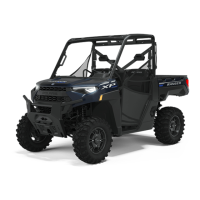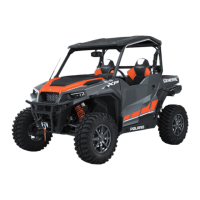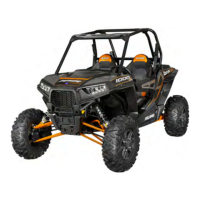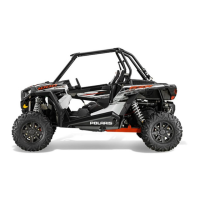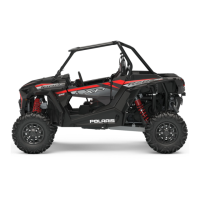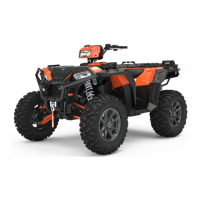Watching someone else go over a jump or go airborne does not mean you can
safely do so. Polaris cannot determine whether any jump you may encounter is
appropriate for this vehicle. Any jump, even a small one, could be poorly
maintained, designed, or not suitable for this vehicle and may cause serious
injury or death.
Plan for hills, rough terrain, ruts, and other changes in traction and terrain.
Proceed slowly and with extra care on unfamiliar terrain. Avoid paved surfaces.
Sudden changes in terrain such as holes, depressions, banks, softer or harder
ground, or other irregularities may cause loss of control or rollover. Give yourself
time to react to rocks, bumps, or holes that may be hard to see. Operating in
deep snow or tall grass may make it harder to see obstacles.
If you cannot go around an obstacle, such as a fallen tree or a ditch, stop the
vehicle in a safe place. Get out to inspect the area thoroughly. Look from both
your approach side and exit side. If you are reasonably confident you can
continue safely, choose the path that will allow you to go straight over the
obstacle to minimize the vehicle tipping sideways. Go only fast enough to
maintain your momentum, but still give yourself plenty of time to react to
changes in conditions. If there is any question about your ability to maneuver
safely over the obstacle, you should turn around if the ground is flat and you
have the room, or back up until you find a less difficult path.
Abrupt application of the accelerator pedal can cause the tires to lose traction,
reducing control of the vehicle and increasing the possibility of an accident,
especially while on sloped terrain or while crossing obstacles such as rocks or
logs.
23
SAFETY
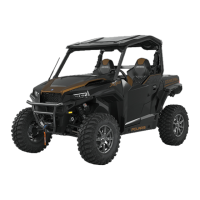
